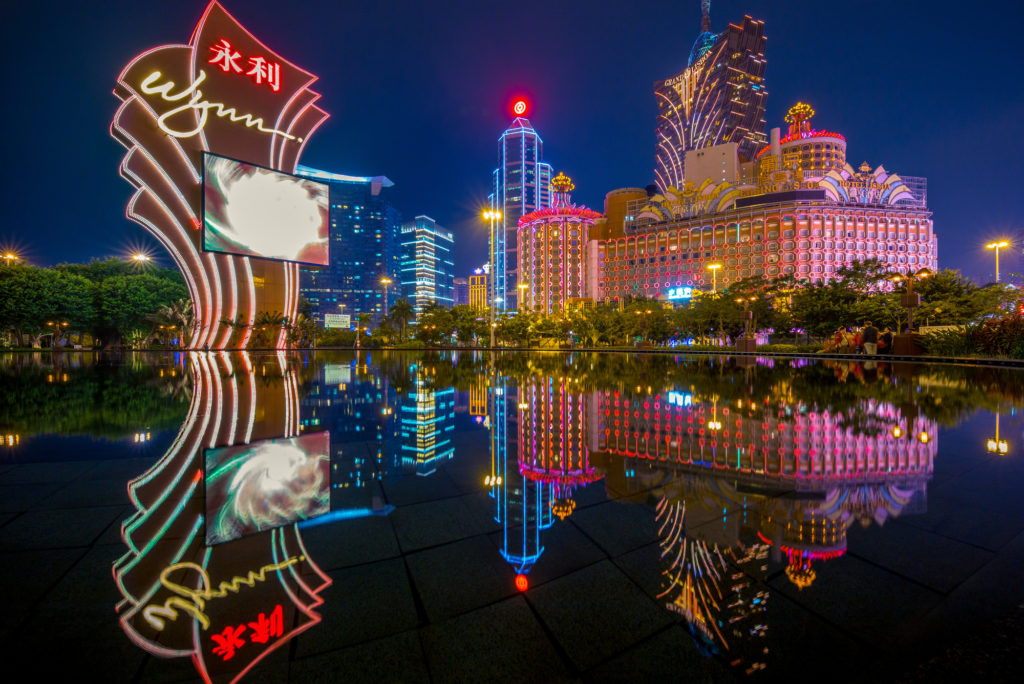Macau has a new gaming law as of June 21, 2022. On that day, Macau’s Legislative Assembly approved Law No. 7/2022, which amends a 2001 law. While the legal framework for gambling remains fundamentally unchanged, the amended law offers a hint of what is to come, not just for Macau’s casinos, but for Macau itself.
In 1999, after more than four centuries of Portuguese rule, China regained control over Macau, which followed Hong Kong in becoming a special administrative region (SAR) of China. The 1987 Joint Declaration between China and Portugal that set the stage for the handover called for the Macanese legal system to remain “basically unchanged” after 1999. Under Article 8 of Macau’s Basic Law:
The laws, decrees, administrative regulations and other normative acts previously in force in Macao shall be maintained, except for any that contravenes this Law, or subject to any amendment by the legislature or other relevant organs of the Macao Special Administrative Region in accordance with legal procedures.
Legacies of the Portuguese era are present in Macau’s contemporary legal system. Of these, the most salient is arguably the preservation of legal casino gambling, which sets Macau aside from the rest of the nation.
Macau has established itself as a global gaming leader. Not having any legal competition in China has helped, of course. This said, Macau’s casinos have been around since long before the city had a meaningful number of visitors from Mainland China: There is a reason why Macau has 24-hour ferry service connecting it to Hong Kong, and why it has more Hong Kong dollars in circulation than its own currency. In any case, Macau’s economy is highly dependent on its casinos for tax revenues and jobs, and to help attract tourists more broadly. (N.B., Macau is a great place to visit, even if you have no interest in casinos.)
The amended law expands regulatory oversight over Macau’s casinos, reflecting the central government’s wishes for tighter controls. Casino licenses are now only valid for 10 years, down from 20. Concessionaries now face an expanded list of duties, and will be subject to a Gaming Inspection and Coordination Bureau review every three years, “regarding compliance with the concession contract in general.” In a clear nod to Beijing, national security threats are now explicitly listed as one of the reasons for cancellation of a casino license. Gaming taxes have been increased slightly, from 39% to 40%.
One of the most interesting features of the new law is that it provides tax breaks for casinos that bring in more foreign (as in, non-Chinese) visitors. This is part of a bid to reduce dependence on Chinese bettors as Beijing cracks down on cross-border gambling activity. Keep in mind that in 2021 China’s Criminal Law was amended, making it illegal to organize Chinese citizens to participate in overseas gambling activities. China has also taken steps to curb gaming-related travel.
It is fair to assume that China’s top brass does not really approve of Macau’s gaming-dependent economic model. As a result, future steps to curtail or completely ban gambling cannot be ruled out. As we discussed back in 2019 in Macau vs. Hong Kong: And the Winner is Singapore, there have been moves to wean Macau away from gambling, most recently talk of turning the city into an international financial center. Yet it is hard to see how Macau can maintain its First World lifestyle without casinos. A gambling ban would cripple the Macanese economy, something that Beijing surely does not want to happen, particularly given how Macau has been a “good student” following the return to the Motherland – in marked contrast to Hong Kong.
Foreigner-only casinos may offer a compromise. Macau would get to keep some casino income coming in, while making it harder for China’s own citizens to legally gamble within the country. The tax breaks provided by the amended law may be paving the way for such an arrangement, by giving the good student Macau a chance to prepare.
For now, China is ready to let the good times roll, with the increased oversight established by the amended law. This said, it may just be a question of time before Beijing decides that open gambling is altogether inconsistent with its socialist values. In that case, Macau better hope that its rulers can at least accept taking bets from those incorrigible foreigners.

























